I am using [adsisearcher] to grab AD User info because it's way faster than get-aduser. I am also trying to figure out how to add it into a hashtable or dictionary using LINQ or perhaps any other alternative that is fast. For me I'm trying to get the best performance/most efficiency because long term goal is importing the data into a contact list.
Here is what I currently have, and this works well, but I'm curious if there is a quicker way to organize the data?
$Start = Get-Date
$searcher=[adsisearcher]""
$searcher.Sort.PropertyName = "sn"
$searcher.Filter = "(&(extensionAttribute2=customValue)(|(mobile=*)(telephonenumber=*)))"
$colProplist = "givenname","extensionattribute2","initials","mobile","telephonenumber","sn","displayname","company","title","mail","department","thumbnailphoto","samaccountname"
foreach ($i in $colPropList){$searcher.PropertiesToLoad.Add($i) > $NULL }
$End = Get-Date
Write-Host "User info took $($Start - $End) seconds"
Write-Host ""
#----------------------------------------------------
Write-Host "Creating User Hashtable"
$Start = Get-Date
$Users=@{}
$Users = $searcher.FindAll() | ForEach-Object{
New-Object -TypeName PSCustomObject -Property @{
'FirstName' = $_.properties.givenname -join ''
'MiddleName' = $_.properties.initials -join ''
'LastName' = $_.properties.sn -join ''
'DisplayName' = $_.properties.displayname -join ''
'SamAccountName' = $_.properties.samaccountname -join ''
'Email' = $_.properties.mail -join ''
'Mobile' = $_.properties.mobile -join ''
'TelephoneNumber' = $_.properties.telephonenumber -join ''
'Title' = $_.properties.title -join ''
'Dept' = $_.properties.department -join ''
'Company' = $_.properties.company -join ''
'Photo' = $_.properties.thumbnailphoto -join ''
'ExtensionAttribute2' = $_.properties.extensionattribute2 -join ''
} | Select-Object -Property FirstName, MiddleName, LastName, DisplayName, SamAccountName, Email, Mobile, TelephoneNumber, Title, Dept, Company, Photo, ExtensionAttribute2
}
$End = Get-Date
Write-Host "User HashTable took $($Start - $End) seconds"
Write-Host ""
I heard using LINQ is very quick, but I get stuck in properly using the syntax and I can't seem to find good documentation or examples of how to use it.
